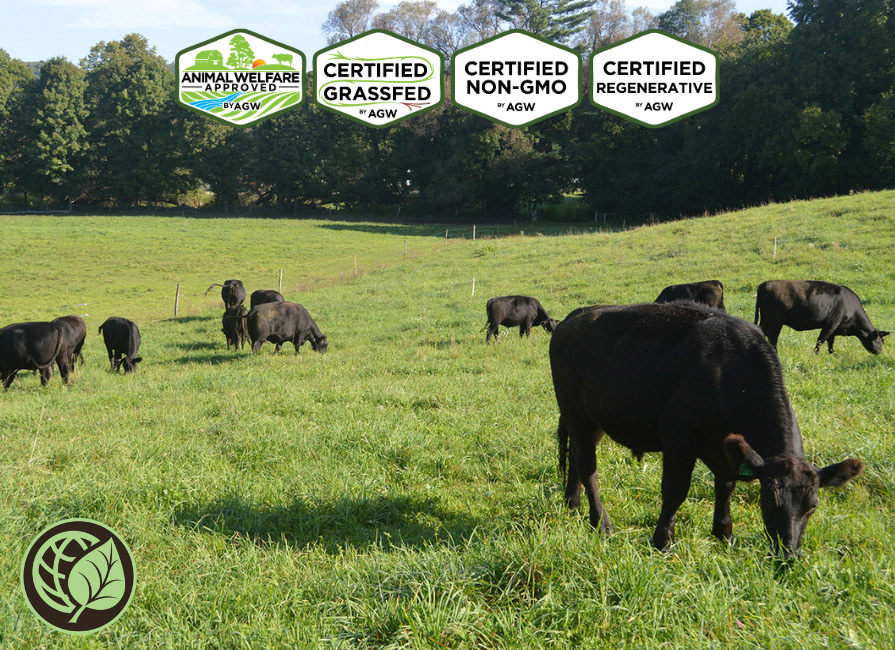One of the key attractions of our Certified Regenerative by AGW program is its practical…
Bachmann and the Black Farmers
 Is presidential candidate Michele Bachmann’s (R-MN) attack on the U.S. Department of Agriculture (USDA) settlement with African American farmers racist? Bachmann is coming under increasing fire for characterizing a settlement to black farmers who were discriminated against as mass “fraud.”
Is presidential candidate Michele Bachmann’s (R-MN) attack on the U.S. Department of Agriculture (USDA) settlement with African American farmers racist? Bachmann is coming under increasing fire for characterizing a settlement to black farmers who were discriminated against as mass “fraud.”
For years, black farmers alleged that they were being denied USDA farm loans or that they were forced to wait longer for loan approval than other non-minority farmers. Some contended that they endured foreclosure and financial ruin as a direct result.
Following a class action lawsuit that was initiated back in 1997 – the so-called Pigford Cases – a U.S. Court has established that between 1983 and 1997 the USDA discriminated against black farmers who applied for farm loans and other assistance on the basis of their race, and that the USDA also failed subsequently to investigate or properly respond to complaints. Following this unequivocal ruling you would think that all efforts would now turn to addressing this injustice as swiftly as possible for the thousands of individuals and families who were wronged.
Yet in a public attack that smacks of racism, Bachmann and a small number of Republican colleagues are alleging that the majority of applications being made by black American farmers under this ruling are fraudulent. According to Bachmann, this “mass fraud” is evidenced by the fact that the number of black American farmer claimants is far higher than the number of black American farmers who were on the agricultural census during the period concerned.
Bachmann’s outburst also reveals a shocking ignorance of the facts. Her apparent lack of rigor is made all the worse because we’re talking about someone who has put herself forward as a presidential candidate.
Bachmann and her cronies really should have done at least some homework before making such insulting allegations. Because the reality is that, through no fault of their own, many of the people who have made applications were left off the agricultural census at the time. In addition, many of the claimants are children of rightful recipients who have subsequently died, while some claimants are people who were driven out of farming altogether because they were unable to get a loan. These are individuals and families who have suffered discrimination because of the color of their skin and they simply want what is rightfully theirs.
Rather than jumping to conclusions that appear to be based on bigotry as opposed to fact, Bachmann and her team would do well to read a Congressional Research Service (CRS) report from December 2010, entitled The Pigford Cases: USDA Settlement of Discrimination Suits by Black Farmers. This enlightening 10-page document explains in very simple language why the number of people who have subsequently made claims may well be higher than the number of black Americans on the Census of Agriculture for the period concerned. It’s not rocket science.
First, it is important to note that before 2002 the Census of Agriculture only counted “principal farm operators” as part of the census process. So according to the 1982 Census of Agriculture there were 33,250 African-American operated farms; in 1987, there were 22,954; in 1992, 18,816; and in 1997, 18,451. As the CRS report explains: “Essentially, the number of African American farms was treated as synonymous with the number of African American operators…” But these statistics failed to recognize that many farms were (and are) operated by more than one farm operator.
Those of us who know how farms operate are well aware that subleases and rental agreements can allow many more people to farm, although they may not necessarily own the land or receive a census form to complete. So when the Census of Agriculture began to collect data for a maximum of three principal operators per farm from 2002 onwards, this new procedure immediately identified 29,090 African American farm operators, more accurately capturing the actual number of farmers, or “those who are actually engaged in farming.”
But, as the CRS report goes on to explain, a single farm may actually be operated by four or more operators, each of whom could have conceivably made loan applications to USDA agencies. A farm operator might also operate rented or leased land owned by a principal operator. In such cases, that operator renting or leasing farmland would not have been counted as the operator of that farm, yet they could be eligible to make a claim because he or she farmed or tried to farm during the requisite time period. It is these varying definitions of “farm,” “farm operator,” and “farm owner” that help to explain why the number of claimants was higher than the number of farms/farm operators in the Census of Agriculture between 1982 and 1997.
Instead of making spurious allegations about mass fraud, Bachmann would do better to ask why this issue was not resolved years ago. Back in 1994, the USDA initiated a study to examine the treatment of racial minorities and women in the face of mounting allegations of endemic racial discrimination in its handling of applications for farm loans and grants. Looking at the period 1990-1995, the study found that minorities received less than their fair share of USDA money for crop payments, disaster payments, and loans. Indeed, the final report found that the largest of the USDA loans went to corporations (65%) while another 25% of the largest payments went to white male farmers. In addition, 97% of disaster payments went to white farmers and less than 1% went to black farmers. The study also noted that, due to “gross deficiencies” in USDA data collection and handling, the reasons for the discrepancies in treatment between black and white farmers could not easily be determined. Again, these statistics come from the 1990s, not the 1950-60s.
Judge Paul Friedman’s proceedings from the Pigford Cases makes for very somber reading in this day and age, with countless graphic examples of racial discrimination experienced by black American farmers at the hands of USDA officials. From personal conversations I have had with a number of farmers affected it would seem the white farmers got their loan applications approved pretty much as they wanted, while the applications of numerous black American farmers were frequently ignored or delayed; subsequent complaints were just thrown into the garbage. John Boyd, president of the National Black Farmers Association (NBFA), even claims that he was spat at by a USDA official, who was later moved to a different office but continued to serve his time at the USDA without any further reprimand. The patience and tenacity of John and his fellow farmers in the face of such hostility is nothing short of remarkable, and I am proud that Animal Welfare Approved is associated with this ongoing fight for equality among family farms.
The settlement includes a process of application and review by a legal panel for each claim, so naysayers can rest assured that each and every application will be reviewed against a set of fair and unbiased criteria, and that each individual will be judged without prejudice. We should expect nothing less.
It’s just a pity that the same cannot be said for Bachmann. Her unfounded allegation that the majority of applications were “fraudulent” has at best revealed a lack of rigor not becoming of a presidential candidate. At worst it has revealed her true nature.
“In essence all three branches of the U.S. Government – legislative, executive and judiciary – have been involved in this case to some degree, acknowledging the bigotry that occurred within the USDA and the need to rectify it,” John Boyd said in a recent communication. “So it defies reason that these outrageous allegations continue. Bachmann is going to have a hard time proving to America that she is not racist if she continues to make these kinds of comments, and I hope the people of this great nation will see fit to ensure that no candidate for the highest office includes racism as part of his or her political campaign.”
Bachmann’s allegations of mass fraud are nothing less than an insult to the thousands of individuals and families who were directly and indirectly affected by racial discrimination at the USDA over the years. The very least that she can do is to issue an immediate public apology for ridiculing a group of people who have been victimized by the USDA and who simply deserve justice – nothing more, nothing less.


